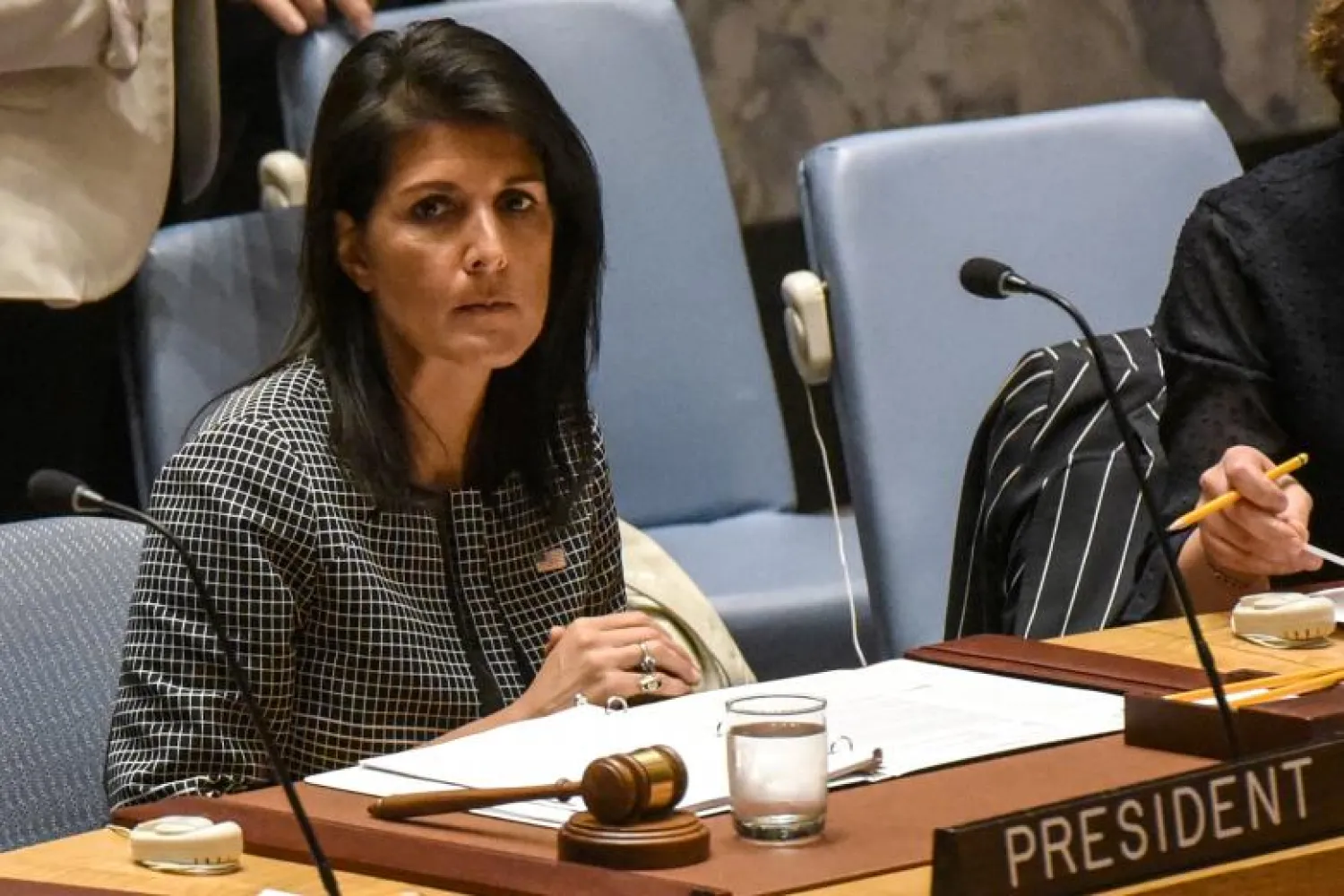The United States on Tuesday called for a UN action against Iran for providing Houthi rebels with missiles and violating the relevant UN resolutions.
US Ambassador to the UN Nikki Haley said that Iran’s Revolutionary Guard Corps had violated two UN resolutions on Yemen by providing weapons to the Houthis.
She added that information released by Saudi Arabia showed the missile fired in July was an Iranian Qiam, which she described as “a type of weapon that had not been present in Yemen before the conflict.”
“We encourage the United Nations and international partners to take necessary action to hold the Iranian regime accountable for these violations,” Haley said.
The two international resolutions (2216 and 2231) referred to by the US ambassador prohibit Tehran from supplying, selling or transferring weapons outside the country without a prior approval by the Security Council. The second resolution prohibits the supply of arms to Houthi leader Abdul Malik al-Houthi, former Yemeni President Ali Abdullah Saleh and his son, and those who act in their name or under their direction.
The US call for action against Iran came after Saudi Arabia announced that its forces intercepted last Saturday over Riyadh airport a ballistic missile launched by the Houthis, which led to the fall of shrapnel over the airport. The missile is the first to reach the Saudi capital.
The Coalition for the Support of Legitimacy in Yemen stressed, on Monday, that Saudi Arabia “retains the right to respond to Iran at the right time and form.”
The coalition has also decided to temporarily close Yemen's air, sea and land ports, as well as preventing the entry of aid under UN supervision despite appeals by the United Nations.
Iran on Tuesday denied Saudi accusations of supplying Houthis with missiles. Iranian Foreign Minister Mohammad Javad Zarif said in a telephone conversation with his British counterpart, Boris Johnson, that “the allegations by Saudi officials were contrary to reality and dangerous”, according to Iran’s foreign ministry spokesman, who was quoted by AFP.
Zarif also slammed “provocative actions by the Saudi government in the region,” the spokesman added.









